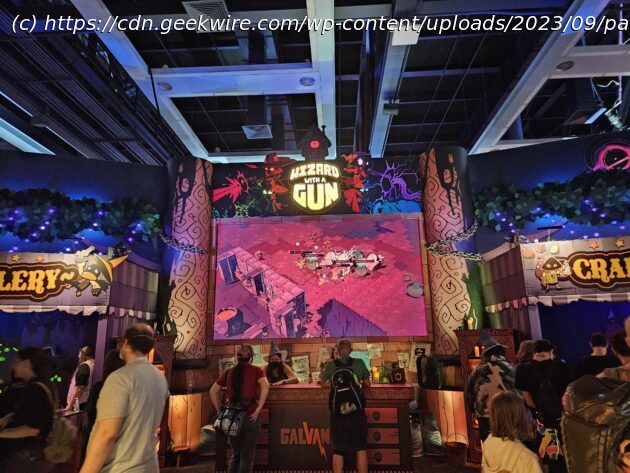To some extent, the Penny Arcade Expo, as a video game show, was defined by who wasn’t there. Nintendo was at PAX, technically, running its separate Live show in a… Read More
To some extent, the Penny Arcade Expo, as a video game show, was defined by who wasn’t there.
Nintendo was at PAX, technically, running its separate Live show in a sealed-off part of the Seattle Convention Center’s Arch building. While many PAX attendees made time to hit both, having access to one event didn’t mean you got access to the other. The two simply co-existed without directly interacting.
Other than that, most of the video game industry’s major players were no-shows last weekend at PAX. Microsoft wasn’t there at all, Sony was reportedly only present via an off-the-books appearance by PlayStation Indies chief Shuhei Yoshida, and if Valve was at PAX, they weren’t obvious about it.
The only real representation at PAX from the big, mainstream end of the games industry — the part that’s usually called “AAA” by analysts — came from the Japanese third-party studios Bandai Namco and Sega/Atlus.
This is arguably part of a larger trend that’s been going on for a while, independently of PAX. For the last few years, many of the big studios in the games industry have been doing much of their own consumer outreach, through branded livestreams, scheduled broadcasts, and other direct marketing methods. This includes Microsoft’s Xbox Directs, Sony’s PlayStation Showcases, Nintendo’s pre-recorded Direct livestreams, and Valve’s near-complete refusal to care about press coverage.
That trend is part of what’s led to the slow demise of the Electronic Entertainment Expo (E3). As recently as 2018, E3 was the big event on the American games industry’s calendar. Now, it’s been canceled for the last thee years running, and right after PAX, news came down that E3 lost its organizer for 2024. E3 as an event might simply be gone for good.
This has all ended up working out in the Penny Arcade Expo’s favor. Back in 2019, when I attended both E3 and PAX West in the same year, it felt like the one made the other irrelevant. As GeekWire contributor Nicole Tanner argued, PAX was dominated by big game publishers, which used up a lot of oxygen in the room that could’ve gone to smaller studios.
Домой
United States
USA — software Report from the PAX floor in Seattle: Independent game developers define this...






